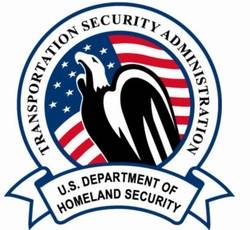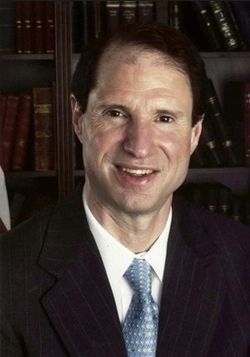It's That Lousy Software They Bought
If it sounds like a duck, it must be a doberman. The TSA's
attempts to automate security have met with varied success: some
attempts have failed; some have failed miserably.
 One of the latest in a long line of unbroken
stupid moves that the expensive, yet bumbling police force has had
blow up in its face, is its flagging system, designed to tag names
of "terrorists" by the sounds of their names. Qadaffi, Khadafi,
Gudafi -- they are spelled so differently, yet sound nearly the
same -- the TSA bought some software that's supposed to reduce even
further its employees' need to think, and is supposed to identify
similar-sounding names.
One of the latest in a long line of unbroken
stupid moves that the expensive, yet bumbling police force has had
blow up in its face, is its flagging system, designed to tag names
of "terrorists" by the sounds of their names. Qadaffi, Khadafi,
Gudafi -- they are spelled so differently, yet sound nearly the
same -- the TSA bought some software that's supposed to reduce even
further its employees' need to think, and is supposed to identify
similar-sounding names.
The problem is, it's not very good. A San Francisco
Chronicle article by Alan Gathright ran last Sunday, and
notes, "...the U.S. government and the airline industry are relying
on software so outdated that it can't distinguish between the last
name of terrorist mastermind Osama bin Laden and punk rocker Johnny
Rotten Lydon." Laden, Rotten; Laden, Lydon -- they all sound kinda
alike.
The problem is, the software tags a lot of "suspects" who
shouldn't be wasting your tax money getting humiliated in the
search rooms. People don't like the intrusion in the first place;
they're doubly-insulted when an obviously stupid mistake is being
used to justify the delay and inconvenience. Osama doesn't look
anything like Johnny, and would no doubt be offended the the
thought that he would be suspected of being a punker.
The TSA says it's only trying to do its job, and it's the
software's fault. The TSA, of course, bought the software...
To be fair, part of the trouble isn't the TSA's. The
Orwellian-named "Patriot Act" says that all Americans are to be
treated as equally-capable of being terrorists, regardless of the
demographics of known terrorists. Thus, the Act itself has forced a
lot of stupid waste into the system, in the name of avoiding the
appearance of profiling -- which is probably the best way to narrow
the search.
Time spent strip-searching your grandmother, of course, can't be
spent searching the swarthy young sweaty guy, carrying a taped-up
cardboard box, who wasn't "randomly chosen" for a search. Oh,
well.
The TSA has noted, though, that if a particular
"suspect" is so repeatedly detained that it's becoming a nuisance,
that person can be put on a special "fly" list, and taken off the
"no-fly" list. How many have received that distinction has not been
made public.
 Next Spring, when CAPPS II
(computer-assisted-passenger-profiling-system) comes fully on-line
(so far, only Delta and Song are using it, to help the TSA gather
performance data), our credit reports will tell the TSA if we're
terrorists or not, despite the fact that better than 10% of credit
reports are invalid on one or more critical data points.
Next Spring, when CAPPS II
(computer-assisted-passenger-profiling-system) comes fully on-line
(so far, only Delta and Song are using it, to help the TSA gather
performance data), our credit reports will tell the TSA if we're
terrorists or not, despite the fact that better than 10% of credit
reports are invalid on one or more critical data points.
TSA spokeswoman Heather Rosenker told the Chronicle's
reporter, "We acknowledge that security threats change and TSA
needs to have -- on behalf of everyone who flies -- the best
possible system in place that gives equal measure to privacy and
security." She admitted, "What is currently being operated by the
airlines does not reach that goal." [Pity, the "best possible
system" ignores the Fourth Amendment.]
Even if the sortware worked, and the long-and-getting-longer
list of "suspects" were miraculously correct, we probably wouldn't
see a change in results. The Chronicle revealed,
"Nationally, the FBI cannot cite a [single] terrorist who's
been captured because of the no-fly list." Apparently, it's the
appearance of security that matters to Congress, and the
ability to spy on the locals, that matters to the rest of
government.
One of the writers of legislation that continues to let the TSA
romp on regular people, Sen. Ron Wyden (D-OR, above), told the
paper, "What this debate is really going to be all about is: How
does government come up with a strategy that allows us to fight
terrorism ferociously without gutting our civil liberties?" For
starters, try, "effectively," rather than "ferociously,"
Senator...
 ANN FAQ: Contributing To Aero-TV
ANN FAQ: Contributing To Aero-TV Aero-News: Quote of the Day (12.10.25)
Aero-News: Quote of the Day (12.10.25) ANN's Daily Aero-Term (12.10.25): North Atlantic High Level Airspace (NAT HLA)
ANN's Daily Aero-Term (12.10.25): North Atlantic High Level Airspace (NAT HLA) Airborne 12.08.25: Samaritans Purse Hijack, FAA Med Relief, China Rocket Fail
Airborne 12.08.25: Samaritans Purse Hijack, FAA Med Relief, China Rocket Fail Airborne-Flight Training 12.04.25: Ldg Fee Danger, Av Mental Health, PC-7 MKX
Airborne-Flight Training 12.04.25: Ldg Fee Danger, Av Mental Health, PC-7 MKX




